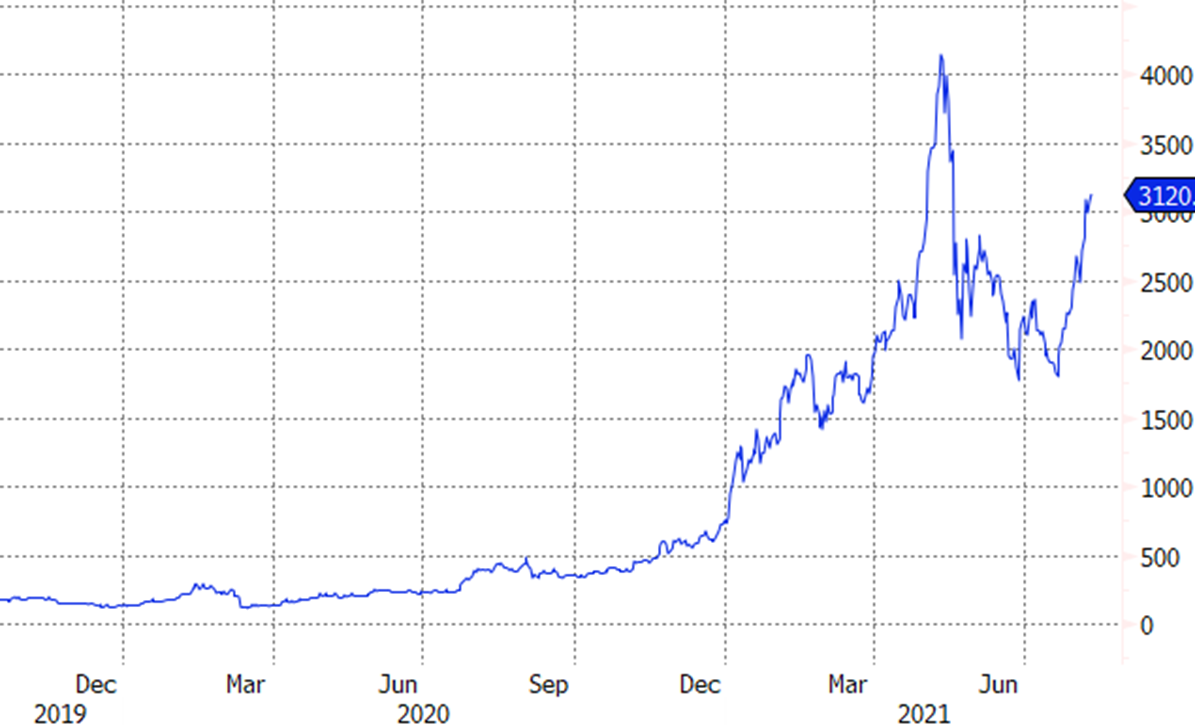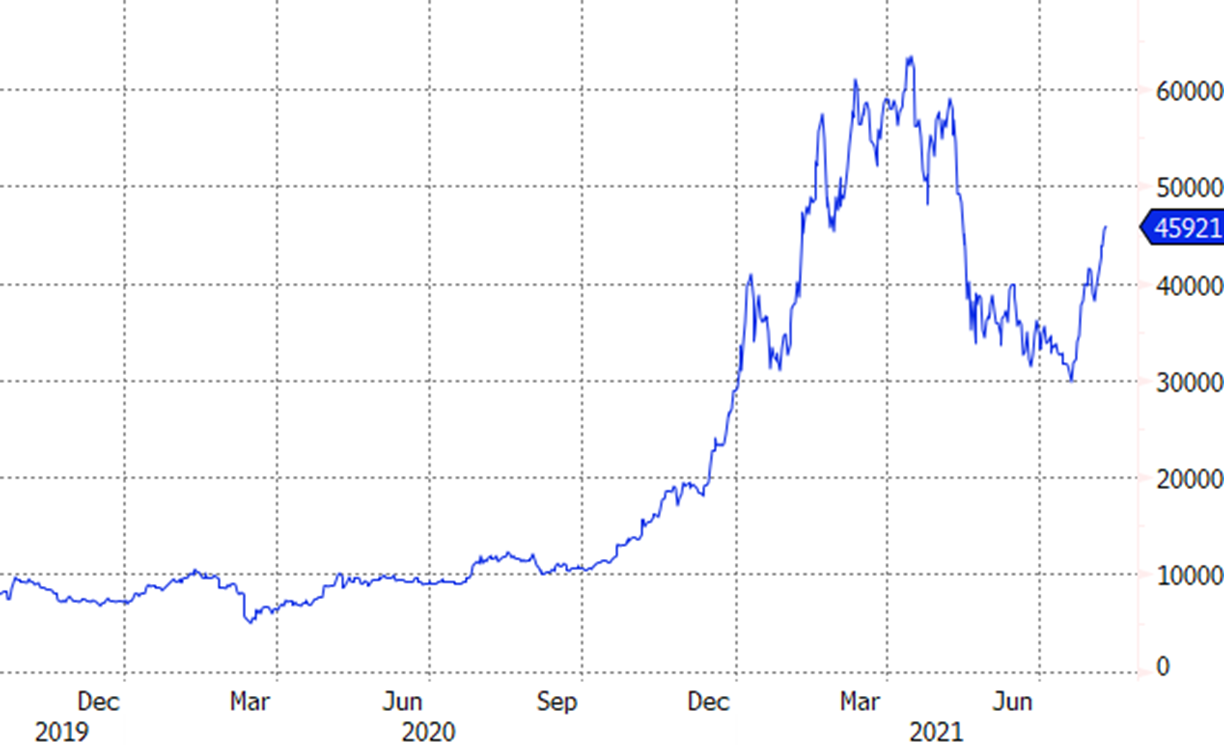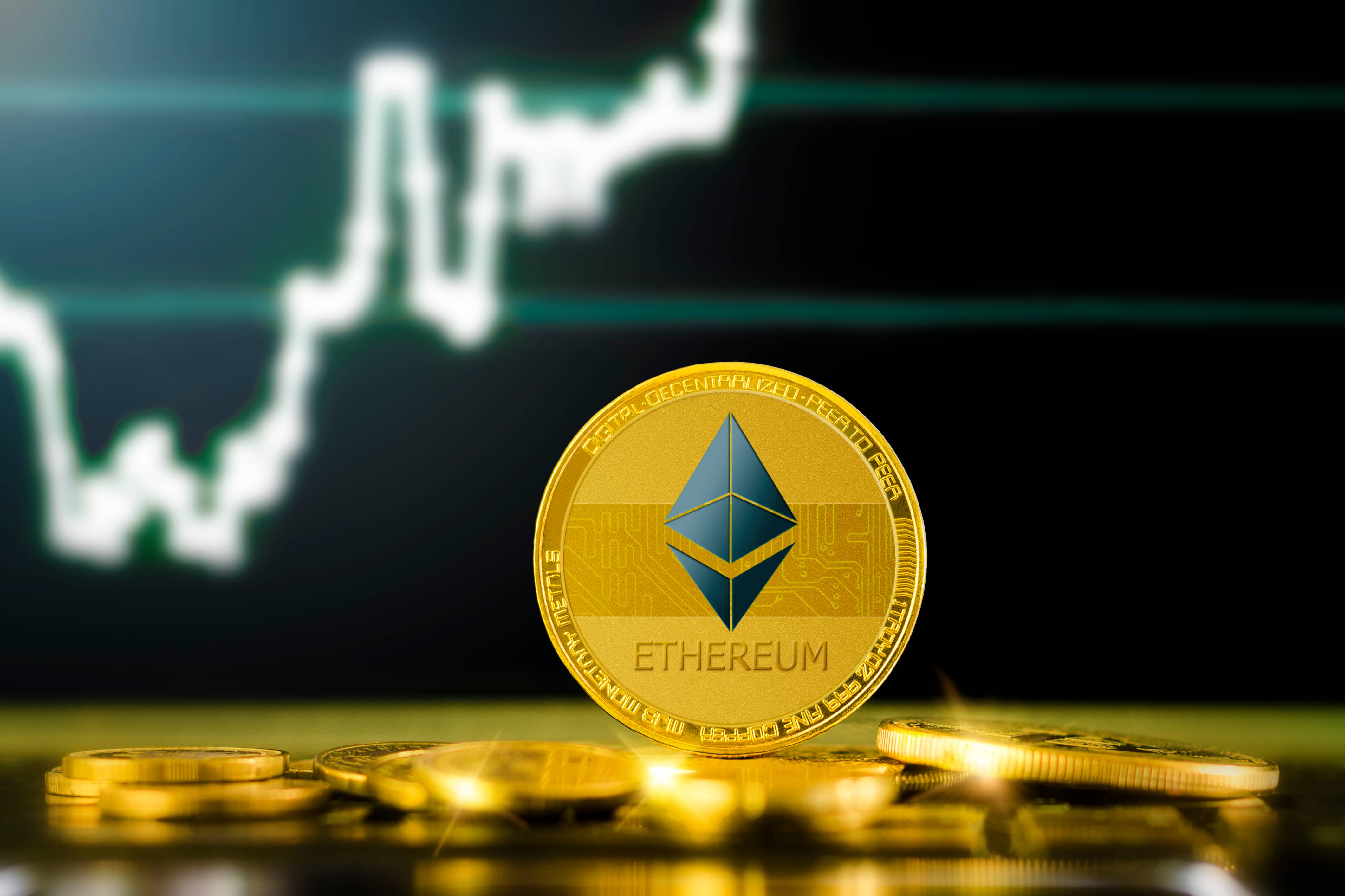Crypto asset prices have been on a tear over the past few weeks, led by a near-doubling in ether prices following a key upgrade of the ethereum protocol.
Prices for ether, the native cryptocurrency of the ethereum blockchain, jumped more than 85% from their lows of around $1,700 on July 20 to a high of $3,200, as at 10 August. Over the same period, bitcoin surged 60%, from less than $29,000 to more than $46,000.
Ether prices

After the big rally, bitcoin and ether find themselves about halfway between their recent lows and their all-time highs set in April and May, respectively.
Bitcoin prices

EIP-1559
While it is too soon to say whether the crypto correction is over, the recovery in prices is a welcome development for bulls. Prior to this run, much of the talk in the market was about whether crypto asset prices would tumble even further than they had as part of a long, grinding bear market similar to the “crypto winter” of 2018.
That type of chatter is gone for now, replaced by bullish enthusiasm centred on EIP-1559, an upgrade of the ethereum protocol that went into effect last week. The upgrade’s main aim is to make ethereum transaction fees more predictable by replacing a first-price auction mechanism with a fixed fee (called a base fee) and optional tip.
While all transaction fees previously went to ethereum miners, under the new system, the base fee is “burned” (removed from circulation) and only the tip goes to miners. Analysts say that a user who pays the base fee and a negligible tip has a high likelihood of having their transaction added to the blockchain.
In essence, the protocol is now calculating the market clearing transaction fee, rather than having each individual user try and figure it out on their own.
User experience was the main impetus for EIP-1559, yet the upgrade’s impact goes beyond just fees. Base fees are burned to prevent miners from making off-chain agreements that could hinder the goal of more predictable transaction costs. But the design has the side effect of reducing the growth of ether supply, which many investors view as bullish for the token.
According to the site ultra sound money, since the upgrade last week, nearly 20,000 ETH has already been burned, equal to $62m at current ether prices.
NFT resurgence
Hand in hand with EIP-1559, a resurgence of interest for nonfungible tokens (NFTs) – most of which exist on the ethereum blockchain – also fuelled upside in ether.
As ETF.com reported earlier this week, the value of one of the original NFT projects, CryptoPunks, has been soaring lately, with even the cheapest punks changing hands for six figures.
OpenSea, a marketplace for NFTs, has seen volume on its platform reach all-time highs in recent days. Now under the new rules of ethereum, a lot of the transaction fees associated with that volume is being burned.
Moving in lockstep
Even as ethereum has dominated the crypto headlines recently, bitcoin is still the world’s most valuable cryptocurrency, with a market cap of $870bn versus $370bn for ether. The debate over the bitcoin network’s energy consumption, ignited by an Elon Musk tweet, has died down for now.
Instead, the focus is back on whether continued retail and institutional adoption of “digital gold” can push prices back to their peaks around $65,000 and beyond.
The crypto space tends to move in lockstep, so bitcoin’s short-term fate may hinge on developments in ethereum more than anything.
This story was originally published on ETF.com
Further reading


